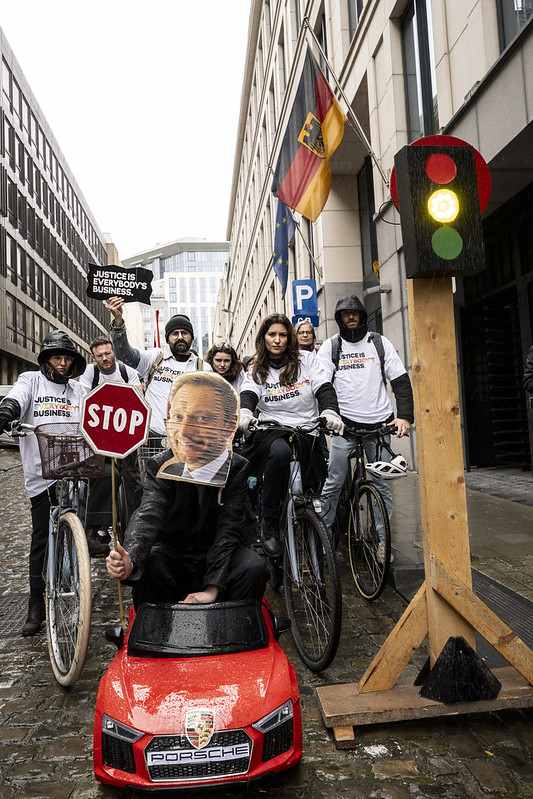
Corporate Sustainability Due Diligence: Member States chose to protect corporate profits and fail workers and human rights
Today the Council of the European Union struck a blow to corporate accountability and workers’ rights in the garment and footwear industry by failing to endorse a deal it had made with the European Parliament and the Commission on landmark legislation to protect human rights and the environment from corporate abuse.
The proposed Directive has gone through a two-year long legislative process and represents a political compromise between the three institutions. It reflects the positions of the 27 Member States and takes into account existing national supply-chain laws, such as in France and Germany. However, in discussions today at the Council‘s Committee of Permanent Representatives, a number of Member States bolstered by Germany and supported by others including Italy, France, Finland and Austria, decided to backtrack on the provisional agreement reached at the end of six months of trilogue negotiations.
“The workers that make the clothes Europeans wear have once again been failed by a system that protects companies at the expense of workers’ rights, wages and safety.” said Muriel Treibich, Lobby and Advocacy Coordinator at the Clean Clothes Campaign. According to Treibich, “Germany and other like-minded member states have advanced fallacious arguments and misinformation to kill a deal that was the result of long negotiations under two EU presidencies; a worrying development that ultimately keeps the most vulnerable in the global economy locked in a cycle of poverty and abuse.”
Tabled by the Commissioner for Justice, Didier Reynders, the Corporate Sustainability Due Diligence Directive (CSDDD) is the answer to years of campaigning by civil society organisations, trade unions and social movements to prevent and end irresponsible behaviour (in their business activities and in their supply chains) by companies that are based and operating in the Union. Indeed, many businesses have spoken up repeatedly in favour of the law.
The law would have addressed a range of issues including poverty wages, unpaid wages, hazardous working conditions and gender-based discrimination and violence. In the garment and footwear sectors, brands and retailers operating in the EU impose unfair contractual terms on their suppliers. They rely on unfair trading practices or long and opaque value chains, which result in poverty wages and unacceptable occupational health and safety risks for workers. At the same time, the same brands and retailers often make unfounded claims about the sustainability and ethics of their products.
The Belgian Presidency of the EU is now left with a short window to re-open negotiations on the text and to find an agreement that can be endorsed by Council and Parliament. Only a few months are left before the end of the current mandate and the next EU elections.
“By failing to endorse the draft directive, Member States are sending a clear signal to European consumers and to workers worldwide: companies can act with impunity and their job to protect them” added Giuseppe Cioffo, Corporate Accountability Coordinator at the Clean Clothes Campaign. “We will continue to stand with workers and unions to fight for human rights, living incomes and decent working conditions and we call on the Belgian Presidency to re-open negotiations promptly so that a new deal that maintains the key elements of the previous one can be agreed before the end of this mandate.”
Almost 11 years after the Rana Plaza tragedy which killed at least 1,134 people, the EU has a unique chance to ensure corporations respect human rights and the environment worldwide. Turning their back on this responsibility should not be an option.
Contact for press inquiries: Giuseppe Cioffo, giuseppe@cleanclothes.org, +32 456 72 15 90